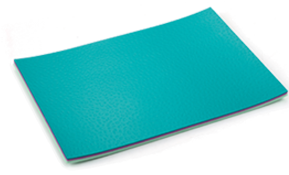10 月 . 09, 2024 10:46 Back to list
commercial warehouse flooring
Choosing the Right Flooring for Commercial Warehouses
When it comes to managing a commercial warehouse, one of the often overlooked but crucial elements is the flooring. The right flooring provides not only functionality but also safety, durability, and aesthetic appeal. Given the unique needs of warehouse operations, selecting the appropriate flooring material can significantly enhance productivity and long-term operational efficiency. Here, we’ll explore some of the best flooring options available for commercial warehouses, considering factors such as durability, maintenance, safety, and cost-effectiveness.
1. Concrete Flooring
Concrete is perhaps the most common flooring option in commercial warehouses. Its exceptional durability makes it ideal for high-traffic areas where heavy machinery, such as forklifts and pallets, are constantly in use. Concrete can withstand extreme weights and is resistant to spills and stains, which are vital features for any warehouse environment. Additionally, it requires minimal maintenance; occasional cleaning and sealing are generally sufficient to keep it in good condition.
However, plain concrete can be slippery when wet, which can pose safety risks. Therefore, applying a textured finish or adding slip-resistant coatings can mitigate this hazard, making it a safer choice for employees.
2. Epoxy Coatings
Epoxy flooring is another popular option for warehouse settings. This is essentially a layer of epoxy resin applied on top of concrete surfaces, creating a hard, seamless finish. Epoxy is highly resistant to chemicals, stains, and abrasions, making it suitable for warehouses that handle various substances, including oils and chemicals.
Moreover, epoxy flooring can enhance visibility in the workspace by allowing for different color applications, which is beneficial for safety signage and delineating different operational areas. With proper installation, epoxy floors can last for many years with little in terms of upkeep, making them a viable long-term investment.
commercial warehouse flooring

Vinyl flooring, including vinyl tiles and sheets, has gained traction in certain warehouse environments, especially where a softer walking surface is appreciated. This type of flooring offers a degree of comfort underfoot, which can be beneficial in warehousing operations where employees are on their feet for extended periods.
Vinyl is also relatively low-maintenance, resistant to water and stains, and available in a variety of designs and colors. Though it may not be as durable as concrete or epoxy in the face of heavy machinery, vinyl flooring can suit warehouses that prioritize aesthetics or have lighter material handling needs.
4. Interlocking Floor Tiles
For those seeking a versatile and easy-to-install option, interlocking floor tiles can be an excellent choice. Made from durable materials such as rubber or PVC, these tiles can withstand heavy loads and are highly resistant to wear and tear.
Interlocking tiles can also provide cushioning, which helps reduce fatigue in workers who stand for long periods. Additionally, they are available in various colors and patterns, allowing for creative floor designs. Their modular nature also means that damaged tiles can be individually replaced rather than having to redo an entire floor.
5. Cost Considerations
When selecting flooring options for a warehouse, it is crucial to evaluate both the upfront costs and the long-term benefits. Although materials such as concrete are initially more affordable, assessing their lifecycle costs, including maintenance and durability, is important. On the other hand, higher-priced options like epoxy may provide substantial savings over time due to their longevity and low maintenance needs.
Conclusion
Selecting the right flooring for a commercial warehouse is a critical decision that impacts safety, efficiency, and maintenance costs. By considering the specific requirements of your warehouse operations and the various flooring options available, you can create a functional and safe environment that supports the productivity of your workforce. Each flooring type has its unique benefits and challenges, requiring careful evaluation to find the best fit for your warehouse needs.
-
Custom Pickleball Court Solutions Convert Tennis & Indoor Builds
NewsMay.30,2025
-
Outdoor Pickleball Court Costs Build & Install Pricing Guide
NewsMay.30,2025
-
Premium Pickleball Sports Courts Custom Design & Installation
NewsMay.30,2025
-
Indoor Pickleball Courts Tennis Court Conversion & Custom Builds Tempe
NewsMay.29,2025
-
Professional Pickleball Court Installation & Tennis Court Conversions
NewsMay.29,2025
-
Grey Synthetic surface-rubber prefabricated track
NewsMar.07,2025

